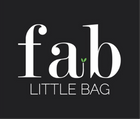
No Sanitary Bin Available – What Do I Do With My Period Pad Or My Tampon?
Many of us are told either to flush them or to bin them when we first learn about periods, from a family member, friend, teacher, or online, and we stick with this. But is that the ’right’ way? Ok so if you are used to flushing your tampons and pads down the toilet, or even just the applicator, we have news for you: That is NOT the right way and can cause serious pollution of our rivers, oceans, and beaches!! All period products must be put into a bin. Binning also means that there is no chance of you blocking the actual toilet and causing raw sewage, yes, raw sewage to flood into your bathroom…
Flushing Is Bad For Your Plumbing And The Environment

Yes, flushing your tampon down the toilet may be an attractive way of disposing of it – no mess, no hassle. But what actually happens when you flush? Tampons are designed to be highly absorbent and to stay in one piece for up to 8 hours while it is inside you. This means that when flushed down the toilet they do not break down into smaller pieces as toilet roll does, and they expand from soaking up fluids. Therefore, flushing tampons can easily cause pipe blockages and potential flooding, just ask any plumber. As well as being bad for the plumbing, flushing period products down the toilet is bad for the environment. For example, according to the Women’s Environment Network (WEN), most single-use disposable menstrual pads can be made of up to 90% plastic which can end up polluting our aquatic environment, with 10% of sewage-related debris collected from beaches in 2020 being made up of period pads, liners and backing strips, tampons, and applicators.
OK, I’m a guilty flusher, I get it, but binning sounds, well messy to say the least! Doing the “loo roll wrap” wrapping the item in reams of loo roll is how most binners bin. This can be fine, but often can feel awkward or embarrassing especially when not in your own home. 87% of women surveyed said they felt awkward binning at someone‘s house ** One way to make it super easy and clean is to use a FabLittleBag as they open with an open hand and seal closed so no mess and no stress.

No Sanitary Bin Available – What Do I Do With My Period Pad Or My Tampon?

Although it is UK law to provide a sanitary bin or an appropriate means of disposing of period products in bathrooms, if a company has any female employees or a likelihood of female visitors (and, of course, all other people who have periods), you may have found yourself in a situation before where there is no sanitary bin available. In this scenario, your only options are to either carry out the waste wrapped in toilet roll hoping it won’t stain your pockets or handbag ( we call this the “Handbag Smuggle” or to flush it. However, using sustainably sourced FabLittleBag made from sugar cane waste and recycle material can ensure that you can still dispose of your tampons and pads easily and hygienically and do the handbag smuggle with no anxiety at all. Just open up the bag, pop your used tampon/pad, applicators, and wrappers in, seal it up and dispose of it in the next available bin. Similarly, you find yourself in someone’s house who does not have a bin in their bathroom – just fab instead – simples!

A massive thank you to Evie Rosette for guest writing this piece!
